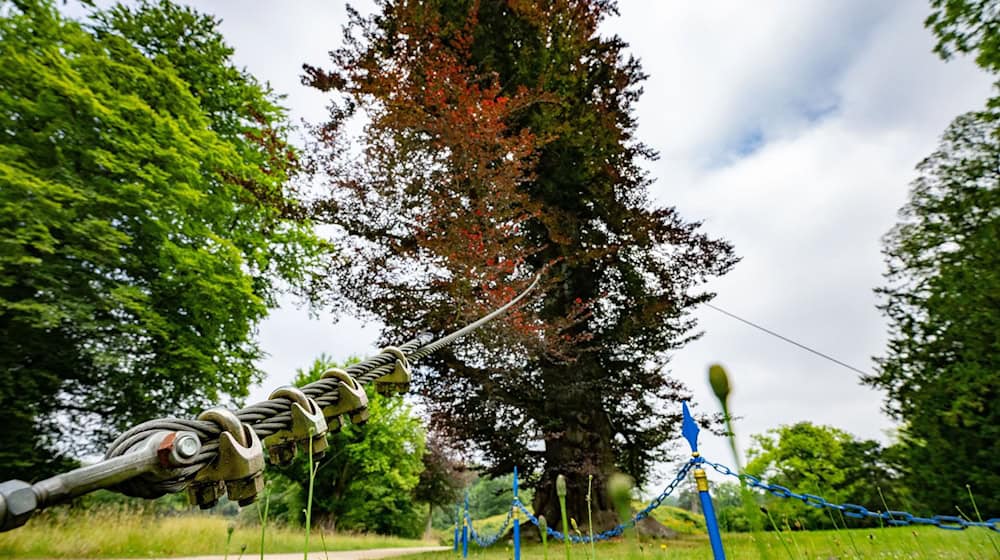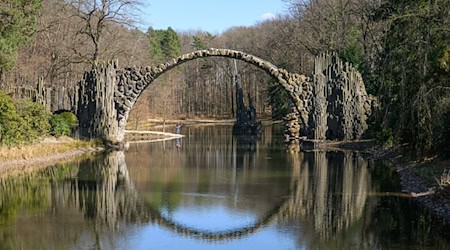A nationwide research project sponsored by the German Federal Environmental Foundation (DBU) and carried out by the Association of German Palace Administrations (AGDS) gives hope for the preservation of historic gardens and parks, despite the serious effects of climate change. "We don't have any good news, but we do have good results," said AGDS President Bernd Schreiber at the final conference on Friday in Bad Muskau, Saxony. Since 2022, the existing knowledge and actions in the garden administrations have been recorded and supplemented by scientifically discussed innovations.
With the solutions found, "we hope to be able to preserve the sensitive garden artworks even in times of climate change", said Schreiber. Almost 90 individual measures, concepts or strategies are now publicly accessible in analog and digital form, including descriptions, figures and contacts - as a brochure and website. The measures range from species protection, meadow and lawn care, mulching and composting to propagation techniques and natural regeneration.
The 15 administrations of the former princely palaces and gardens united in the AGDS are convinced that their preservation "is also a social task", said Schreiber. Visitor numbers in the millions prove "an incredible emotional potential and a connection between the population and the garden and art monuments".
Since the drought years of 2018 to 2020, the maintenance work in the AGDS facilities has increased by around 25 to 30 percent, said Jost Albert, Garden Director of the Bavarian Palace Administration. An estimate of the additional work in Germany's most important garden monuments from 2022 assumes an additional 200 to 250 million euros.
Despite massive losses of old trees, there is "very justified hope for the historic gardens", the project concludes. Cord Panning, Managing Director and Park Director of the Fürst-Pückler-Stiftung Bad Muskau, called for the large state-run companies to be strengthened. They have the skills, continuity and resources "to be pioneers in getting climate change under control".
The conclusions include looking at the entire spectrum of the soil-water-plant complex and readjusting park maintenance management. In the past, too much had been outsourced "and now has to be reintegrated into the preservation processes, sometimes laboriously and at great expense", said Panning. This applies, for example, to the storage capacity and fertility of the soil, the retention of surface water in the grounds, the construction of cisterns or the cultivation of hardy trees and shrubs in in-house nurseries.
Historic gardens have been dealing with the problem of climate change for over 20 years. In the past, gardeners were able to "optimize the consequences with all kinds of tricks", said Schreiber. "This deceptive balance was completely overturned in the catastrophic drought years of 2018 to 2020." The water supply to the old trees collapsed, the number of trees felled increased tenfold and irreversible losses due to new damaging factors increased "alarmingly", according to the report. In view of this, preserving the masterpieces of garden art authentically is "a Herculean task".
Copyright 2024, dpa (www.dpa.de). All rights reserved










